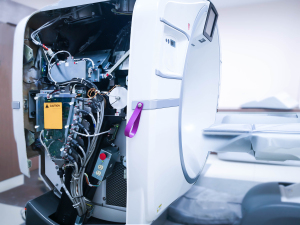by
John R. Fischer, Senior Reporter | September 01, 2021

Proper product support analysis and supportability analysis are needed to ensure a device can be maintained before purchasing it
From the September 2021 issue of HealthCare Business News magazine
Knowing the inner and technical workings of a medical device prior to purchasing it can help providers determine whether or not they have the resources needed to maintain and support its use. This, in the long run, saves time and money on costly repairs.
Diego Gomez-Morales, deputy of medical maintenance policies and analysis for the U.S. Army Medical Logistics Command, says the key to this is making sure the device has a solid integrated product support foundation, which ensures clinicians can operate and maintain it right out of the box. This, he says, requires proper product support analysis and supportability analysis.
“The outcome is going to be a comprehensive maintenance concept. You’re going to have a good risk management framework and time strategy. You’re going to have good requirements for testing the system. The contracting requirements will be better detailed and will mention the repair parts needed,” he told an online audience in a session, “Analyzing Product Support Aspects Before Purchasing Medical Devices,” that he hosted at the 2021 virtual AAMI eXchange REWIRED! Conference.
A quality product support analysis includes a number of steps, from having the right facilities and infrastructure to maintenance planning and management. Supportability analysis should include level of repair analysis, failure modes effects and criticality analysis, and maintenance task analysis. The result, according to Gomez-Morales, will be an IPS that can support devices with maintenance strategy and planning, a risk management framework, training plans, repair parts list, and contracting requirements, among other resources.
Maintenance task analysis is especially important as it provides users with the technical data needed to properly maintain a solution. Gomez-Morales recommends that providers consult technical subject matter experts about this before purchasing a solution, and to put in the contracting strategy and documents that the purchase includes the operator and service manuals. “If you don’t buy the service manual or the service package then you might not get that information,” he said.
Another useful resource is a supply and support definition that outlines the different management actions, procedures, and techniques needed to determine, acquire catalogs, receive and store repair parts, consumables and accessories. This allows users to stock up on components in advance and plan ahead for breakdowns. A repair parts list is also important, as that specifies the size, weight and physical makeup of the equipment and can give you an estimate of future repairs. With it, providers can be aware if a replaceable part is accessible to them or only to the manufacturer.
